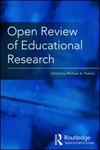How to integrate addiction medicine in psychiatry training: results of an experiment with two educational methods
Q1 Arts and Humanities
引用次数: 0
Abstract
ABSTRACT The high rates of comorbidity with substance use disorders in general psychiatry patients demand enhanced competences from psychiatry residents in addiction medicine. The aim of this article is to improve knowledge, skills and attitudes in psychiatric residents in treating patients with comorbid substance-related disorders (SUD). Four seminars with all residents on relevant and actual knowledge on substance-related disorders and a small group experience of five sessions on improving skills and attitudes in dealing with patients are described and evaluated quantitatively and qualitatively. Both quantitative evaluations show that seminars and small group experiences are highly appreciated. Concerning the seminar, residents appreciated, in particular, to study and present selected up-to-date literature and the positive learning environment. The small group experience resulted in sharing feelings and thoughts about patients with SUD and mutual support. The results show that the goals of these two methods of education have been met. This means that these two methods can be integrated in the training of residents in psychiatry to increase knowledge, skills and attitudes concerning addiction.如何将成瘾医学纳入精神病学培训:两种教育方法的实验结果
摘要:普通精神病患者与药物使用障碍的高共病率要求精神病住院医师提高成瘾医学的能力。本文的目的是提高精神科住院医师治疗共病物质相关障碍(SUD)患者的知识、技能和态度。对所有居民举办的四次关于物质相关疾病相关和实际知识的研讨会以及五次关于提高与患者打交道的技能和态度的小组经验进行了定量和定性描述和评估。两项定量评估都表明,研讨会和小组经验受到高度赞赏。关于研讨会,居民们特别感谢学习和介绍精选的最新文献和积极的学习环境。小组经历导致了对SUD患者的感受和想法的分享以及相互支持。结果表明,这两种教育方法都达到了目标。这意味着这两种方法可以结合到住院医师的精神病学培训中,以增加有关成瘾的知识、技能和态度。
本文章由计算机程序翻译,如有差异,请以英文原文为准。
求助全文
约1分钟内获得全文
求助全文
来源期刊

Open Review of Educational Research
EDUCATION & EDUCATIONAL RESEARCH-
CiteScore
2.60
自引率
0.00%
发文量
0
审稿时长
22 weeks
 求助内容:
求助内容: 应助结果提醒方式:
应助结果提醒方式:


